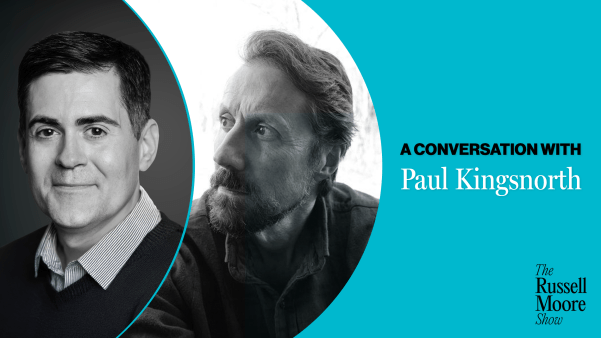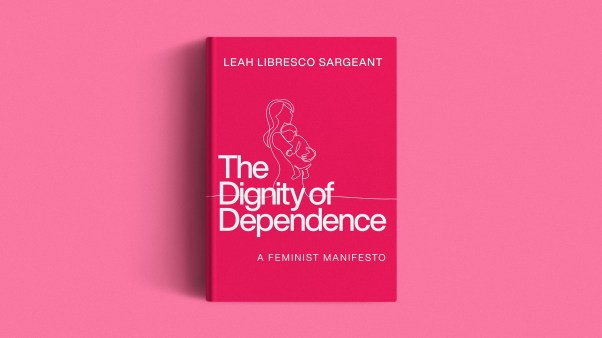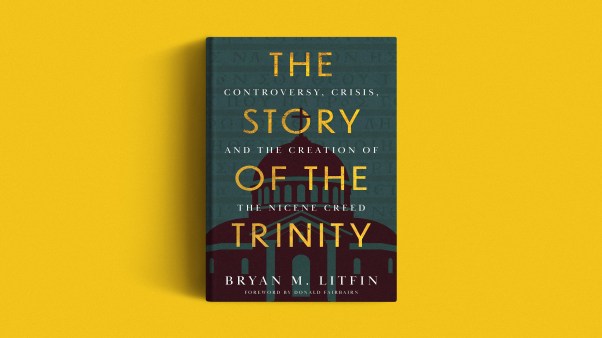
Her.meneutics isn't in the habit of encouraging thought experiments, but try this one for a moment.
If you kept a log of all your thoughts and remarks about men in a given day, what types of statements would be listed? Or, put another way: How many words can you think of to describe a man you disrespect? Now how many can you think of to describe a man you esteem?
As soon as I asked myself these questions, I thought of two or three dismissive nouns to which I could reduce a guy who angered or frustrated me. But I struggled for positive counterparts, and the ones I thought of (prince and, um, prince) seemed derived from the world of fairytales and fantasy — words I couldn't really use in any honest way.
Were you much different?
That pattern, I suspect stems from our incomplete knowledge of others. As a consequence, we're constantly filling in the gaps, taking what we know and then adding sin or perfection. So we construe Mr. X based on selfishness, lust, or sloth (cue disgust) or on the wit, sensitivity, and Rogaine that we think will render life together pain-free and easy (cue unrealistic expectations). Worse, our projections for Mr. X aren't even about what kind of man the mythical he is, but the special ways he could please and satisfy us — or is sure to fail in doing so.
This, I think, is why we see such brokenness displayed in the industrial complex of Valentine's Day. It's not about the glorification of self-giving, other-serving love, but the demand for another's love to serve and gratify us.
The Bible offers a different way to think about romantic love in light of the life, death and resurrection of Jesus. And I'd like to suggest that it also offers a different way to conceive of our brothers.
The tendencies described above suggest that we tend to imagine men as either wholly depraved and under sin or angelic and free of sin. But what if we imagined them under grace and living by the power of the Cross? To do so is to uphold and affirm both men's fallenness under the curse, and their potential to image the God who created them and empowers them to help bring his kingdom on earth.
Try it for a moment. Think of a man you tend to disgust or scorn and imagine what he would be like if God really got a hold of his life. What would he be like "on" Jesus (in the parlance of that old, Reagan-era anti-drug commercial)? Not the Jesus of greedy TV preachers and seven-day conversions but the Jesus who transformed John Newton from a slave trader into a preacher who penned one of our most enduring expressions of grace. The Jesus whose love so radically transformed a zealous and murderous persecutor of the early church that he became one of its most passionate defenders and exhorters, preaching and writing until he himself was put to death. What if that Jesus got into the man you can't stand? What would he be like? What traits and skills of his, if redirected by love and humility, could become a means of blessing and serving others instead of causing harm and destruction?
To me, that kind of creative imagining is hoping on behalf of our brothers. And when pursued to the extent of asking God to help men achieve their potential for good, I submit it can be a way to love them.
That's why, when I got the idea to organize a day of prayer for men, I immediately thought of Valentine's Day. However distorted or commercialized it is, the holiday's core is still, ostensibly, about love. No other observance throughout the year has quite the same association. And because the day also connotes sex and romance, it seemed especially suited for a day of prayer for men in the grips of deep sexual brokenness—those whom society considers the pinnacle of male depravity.
I'm talking about the johns, as they are called in this country: the men who pay for sex.
Pray for the Johns Day came from two threads in my life: nearly four years of praying and fasting about singleness and marriage, as part of a group that's ultimately asking God to heal relational brokenness, and a growing exposure to the issue of human trafficking, most recently through my Her.meneutics interview with Faith Huckel, director of the anti-trafficking group Restore NYC.
For whatever reason, I came away from Huckel's and my conversation haunted by the men who drive the demand for commercial sex. When that sense of burden bled into my next Monday fast and I asked God how to pray in response, the idea I got was Pray for the Johns Day.
What does praying for men who buy sex look like? Depending on your schedule, it could mean praying for a few minutes on your commute, taking lunch to fast and pray or even prayer walking through an area of your neighborhood or community where there are sex shops or strip clubs or have been arrests for prostitution or sex trafficking. (Not for Sale's Slavery Map can help you locate such areas.)
I'm suggesting you pray two things: 1) that men who pay for sex would repent and turn from their ways; and 2) that they would be transformed into people whose lives would bless others and bring good. The event website includes additional resources and suggestions, including a sample prayer that churches can use to pray for the johns.
Whether or not you join me in praying for the johns this Valentine's Day, I encourage you to try praying on behalf of the next guy who prompts you to curl your lip in disgust. See what happens when you actively hope for God's love to transform his life.
Anna Broadway is a writer and web editor living in the San Francisco Bay area. She is the author of Sexless in the City: A Memoir of Reluctant Chastity and a regular contributor to Her.meneutics.
Fox Walden has released the first one-sheet poster for The Voyage of the Dawn Treader, the third film in the Chronicles of Narnia series, coming to theaters this December.
The image here pretty much speaks for itself – Aslan’s face, the mouse Reepicheep standing atop the title, the Dawn Treader reflected in Aslan’s eye. And the text: “Return to Magic. Return to Hope. Return to Narnia.” All well and good, except for one thing, IMHO: The heavy emphasis on 3-D. The type size for those letter is almost as big as the word “Narnia” itself.
Sigh. I knew this film was going to be in 3-D, and have just kind of ignored that point for months. But now that I see the term so prominent on the poster, it’s right there, in your face, and there’s no getting around it. I agree wholeheartedly with Roger Ebert’s essay – about why he hates 3-D – which we posted earlier today.
Narnia doesn’t need a gimmick. Just tell the story and show us the characters – who are already quite three-dimensional – and by Aslan’s mane, everything else will take care of itself.
Despite that gripe, I have high hopes for this movie, after being somewhat disappointed by The Lion, The Witch, and The Wardrobe, and quite disappointed in Prince Caspian. I think Walden has righted the ship, so to speak, with a renewed commitment to the source material, and based on some early buzz, I’ve got a good feeling. And, of course, I don’t have to see it in 3-D; I’ll enjoy one of my favorite fictional worlds – and some of my favorite characters – in two dimensions just fine, thank you!
(Hat tip to Rachel at NarniaWeb.)








